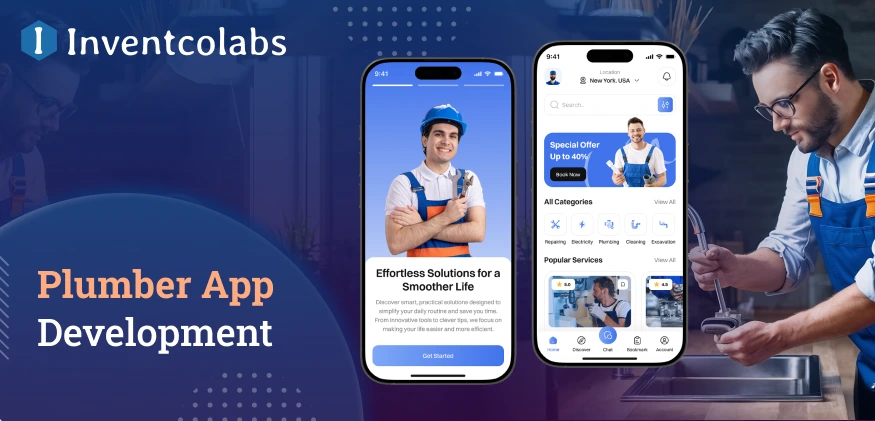Native applications tend to work smoothly across mobile devices. The graphic transitions of these applications take less time for User Interface (UI) rendering in comparison to cross-platform applications. The reason for this is simple –the code is capable of communicating straight to the mobile Operating System (OS) core, supporting UI methods.
On the other hand, native mobile Operating Systems are composed of different languages. For instance, the Android Operating System serves to be a mix of C++ and C. On the other hand, the iOS platform is built on the concepts of Swift and Objective C. Therefore, native mobile app development requires knowledge of some basic programming languages like Java and Swift.
Cross-platform mobile applications tend to be less competitive when it comes to graphic animation. To top it all, they are highly cost-efficient and a great fit for early-stage startups or firms. To support the concept, Facebook came up with React Native in 2015. The concept of cross-platform mobile app development became true. You are only expected to code once. The next major advancement took place in 2017 when Google unveiled Flutter. It is based on the Dart programming language.
Flutter Vs React Native
| Flutter | React Native | |
|---|---|---|
| What is it? | A portable User Interface for the development of natively designed apps across the desktop, mobile, and web from a single dashboard | A dedicated framework for developing native applications with the help of React |
| Date of the official release | December 2018 | March 2015 |
| Creator | ||
| Open-source and free | Yes | Yes |
| Popularity | 12,000 stars on Github (2021) | 95,300 stars on Github (2021) |
| Programming languages | Dart | JavaScript |
| Native performance | Great | Great |
| User Interface | Apps on Flutter appear great on any updated operating system like on the older versions | Application components appear just like the native variants |
| Code sharing | With Flutter 2, it is possible to make use of the same codebase for shipping native apps to different operating systems –Linux, macOS, Windows, Android, and iOS | Android and iOS –still there are some select libraries that allow you to make use of the same code for building Android, iOS, Windows 10, and web apps. |
| Top apps made | Google Ads, My BMW, Philips, Hamilton, Xianyu by Alibaba | Tesla, Facebook, Instagram, Facebook Ads, Skype |
| Time-to-market | Quite faster in comparison to native app development | As fast as development with Flutter |
| Competitive advantage | Rapidly increasing popularity and community Impressive looks and great feel Great documentation with relevant support Impressive time-to-market duration | Ease of reusing code for both desktop and web app development Several tutorials and libraries available as of learning the technology at community greater stability |
What Is Flutter?
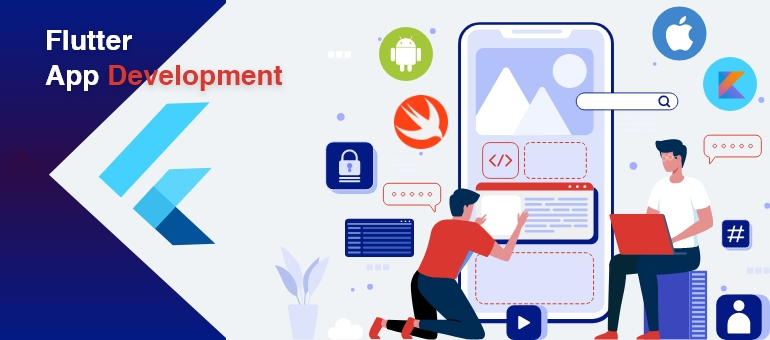
Flutter is a mobile-based, open-source SDK development tool used by developers for building native-like iOS and Android applications with the help of the same code base. Flutter was introduced by Google to serve as the open-source programming technology for ensuring coding and developing native apps.
Flutter is known to combine the ease of app development with the entire performance –quite similar to native app development performance. Moreover, the technology from a reliable Flutter app development company also helps in maintaining visual-based consistency between different platforms. Dart –the programming language of Flutter had been initially aimed at replacing JavaScript. Flutter shares equivalent popularity with React Native on both Stack Overflow and Github.
Google makes use of Flutter for a wide range of Google Assistant modules. It is also utilized for Google Home Hub UI (User Interface). To top it all, there are over 50,000 Flutter-based apps on Google Play Store. Hire Flutter developers for optimum results.
Pros & Cons of Flutter 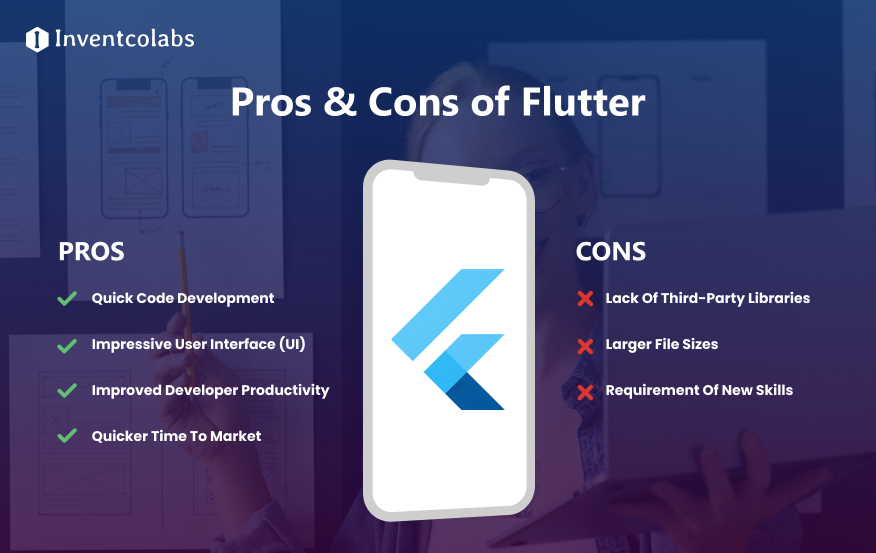
Pros Of Flutter
As far as the development of applications is concerned, developers do not remain limited to a single cross-platform mobile framework. Here are some reasons why Flutter application development is becoming a leading choice among developers:
#Quick Code Development
The creators of Flutter wished to come up with a technology that delivers the most instant opportunity to provide a highly functional, cross-platform mobile-based application. Some of the features of Flutter that ensure the same are:
- Widgets
- Hot Reload
- Access to Native Features and Minimal Coding
#Impressive User Interface (UI)
The architecture of Flutter is designed to build a custom and functional UI. Some of the supporting features are:
- Beautiful, Custom Design
- Similar UI and Business Logic
- UI Customization
#Improved Developer Productivity
Flutter is primarily designed for ensuring quicker code writing. It comes forth with easy-to-use, built-in widgets and the overall syntax requires minimal code to be written. The feature of hot reloads accelerates the searching and bug correction processes.
#Quicker Time To Market
With the help of improved productivity of developers using Flutter, it takes minimal time to come up with an application. The less support effort and coding needed, the quicker becomes the time to market for a particular application.
Cons Of Flutter
While Flutter might have several benefits, there are some areas that still need improvement:
#Lack Of Third-Party Libraries
Flutter tends to be a relatively newer technology. Therefore, the total number of third-party libraries available for the technology is quite limited.
#Larger File Sizes
A good number of applications designed with the help of Flutter are meant only for mobile-based devices. While the current range of mobile devices has impressive storage capabilities, file size still remains important.
#Requirement Of New Skills
Flutter is easy to use and can be easily learned by even non-programmers. Still, it is expected of the developers to possess knowledge of Dart initially. As such, it might subsequently increase the overall time and money to complete any project.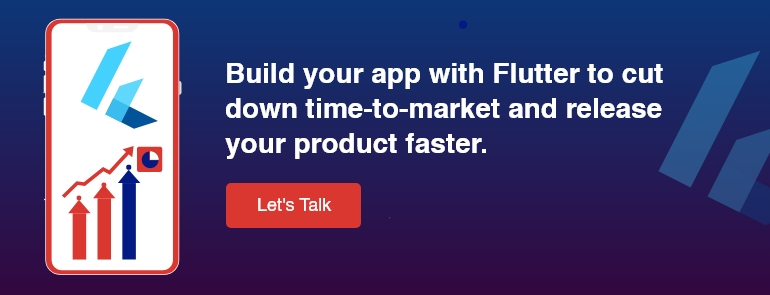
When To Choose Flutter?
If you have defined Flutter as the ultimate solution for mobile app development, here are some more reasons to choose the programming technology for your development project:
- Impressive support and community
- Use of widgets as the core element
- Working with native functionality
- High-performing framework for application development
- Greater adoption in the industry
- Effective lifecycle management
- Simpler code structure
When Not To Choose Flutter?
You might refrain from using Flutter for your development project in the following cases:
- Creation of apps with rare native libraries
- Development of AR/VR apps
- Having several points of interaction with the hardware of the device –there is no plugin for supporting this functionality
- Development of instant applications (small-sized applications) and progressive apps
- Greater adoption in the industry
- Effective lifecycle management
- Simpler code structure
What Popular Apps Are Made With Flutter?

- Hamilton app –Broadway Musical’s official app
- Baidu Tieba –the most significant communication platform in China hosted by Baidu, the leading search engine company in the country
- Groupon –using Flutter to help a number of merchants manage customer satisfaction, keep track of campaign performance, and receive proper support
- Xianyu –the app by Alibaba –one of the largest e-commerce platforms in the world
- Google Ads app
- eBay Motors –a powerful tool for searching, buying, and selling automobiles directly from the smartphones of consumers
- Stadia –the gaming platform of Google. Users are allowed to play games across mobile devices, desktops, and laptops
Read Also: Why Next.JS is the Technology to Lookout in the Future?
What Is React Native?
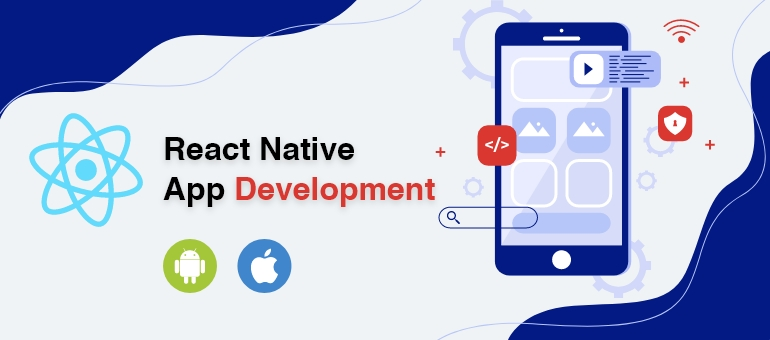
React Native has been effectively implemented by thousands of businesses across the world –including Facebook, Instagram, Microsoft, and so more, across a wide range of industry verticals. React Native or RN is a leading JavaScript-based mobile application framework that ensures the development of natively-designed applications for Android and iOS. The framework allows developers to create an application for different platforms with the help of a single codebase. Hire React Native developers from reliable agencies.
React Native was first unleashed by Facebook as an open-source technology in 2015. In just a few years, it managed to become one of the highly sought-after solutions for mobile app development. In the modern era, React Native is used for powering some of the most famous apps in the world –including Skype, Facebook, Instagram, and so more.
Before React Native, ReactJS was released as in the competition of React Native Vs. ReactJS. Initially, ReactJS was given the status of serving as an open-source technology by Facebook. With time, the development of React Native took place. ReactJS tends to focus on mobile-first design. On the other hand, React Native is utilized for native mobile application development.
Pros & Cons of React Native

Pros Of React Native
There are several benefits of using React Native for mobile app development. These are:
#Great Community Support
As it is an open-source network, React Native from a reliable React Native app development company allows its community of developers to go through all possible documentation with respect to the technology free of cost. Moreover, the platform also allows developers to deliver their contributions whenever they want to.
React Native is a platform that is entirely community-driven. Therefore, you can always look forward to reaching out for guidance from other experienced developers, browsing relevant information, and helping other developers as well. Developers can leverage the benefit of the active community by asking others to offer relevant feedback or review ongoing projects.
#Optimal Performance
The effectiveness of React Native is due to its use of controls and modules for improving overall performance. The platform operates by interacting with the native components of iOS and Android. It then proceeds to generate codes to the native APIs that remain independent of any type of interference.
Performance improvement is the direct result of the given framework as it makes use of a distinct thread –separating it from the UIs and native APIs.
#Pre-Developed Components And Code Reusability
One of the most crucial benefits of using React Native for app development is the ease of code reusability. All that the developers are expected to do is make use of around 90 percent of React Native codes for Android and iOS. This significantly helps in reducing the overall time as well as the cost of the app development project.
The presence of pre-developed components in the respective open-source library of the platform allows developers to access necessary codes freely. The given codes are already composed. The developers only have to get them ready for deployment. This results in faster development of the application.
#Simplified UI
The driving force behind the functionality of React Native is its uncomplicated and simplified mobile UI or User Interface. The JavaScript library in the platform is like the open-source framework instead of serving as the traditional framework. As such, developers are capable of achieving the right sequence for the development of apps. In most cases, the applications that are designed using React Native tend to be highly responsive, take less time to load, and feature seamless UX.
Cons Of React Native
Some of the disadvantages of React Native are:
#Immaturity
React Native serves as a relatively newer entrant into the application development industry. The methods associated with the React Native lifecycle have not totally assessed as yet. This is the reason why it might have an unpredictable or negative impact on the functions of the app. The React Native framework keeps evolving every now & then –featuring newer updates almost every week. Therefore, app developers need to be updated on a regular basis to be aware of such changes.
#Difficulty In Learning
It can be a complicated process to learn React Native –especially for beginners in the field of app development. Additionally, along with the React Native framework, developers are expected to have knowledge about native app coding. React Native libraries having native bridges for features like maps, videos, and so more will require in-depth knowledge of the developers.
#Reduced Security
React Native serves as a JavaScript library. Moreover, it is also an open-source framework. Due to this, developers might face the challenge of ensuring that the app remains safe and secure at all times. JavaScript is quite sensitive. Therefore, developers might experience reduced levels of security in some cases.
The presence of pre-developed components in the respective open-source library of the platform allows developers to access necessary codes freely. The given codes are already composed. The developers only have to get them ready for deployment. This results in faster development of the application.
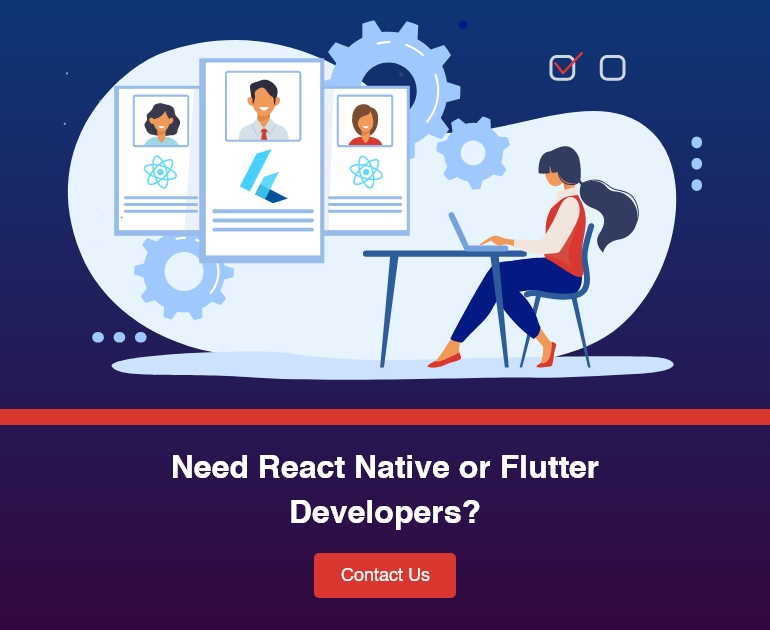
When To Choose React Native?
Now that you are aware of the benefits of React Native for your project, are you still not sure whether or not to choose the framework? Here are some reasons to opt for React Native for app development:
- Saving time and money
- Creation of intuitive mobile apps
- Utilization of existing skills
- Addition of third-party plugins
When Not To Choose React Native?
There could be some instances wherein you should not consider using React Native for app development. These are:
- For applications having complicated user interfaces
- For the development of utility apps like battery monitors
- For applications that are specifically built for a single Operating System (OS)
- For applications that make use of abundant computation
- For components that tend to behave differently
- In the case of abstraction layer issues
What Popular Apps Are Made With React Native?
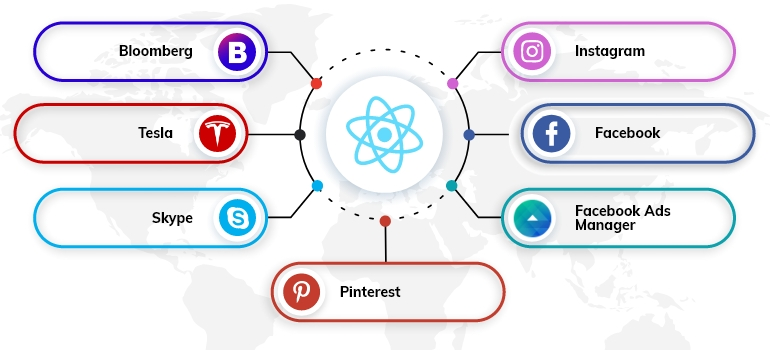
- Facebook Ads Manager
- Skype
- Tesla
- Bloomberg
The Future Of Flutter And React Native
An increasing number of companies are getting attracted to Flutter. There have been reports of monthly improvements in the Flutter SDK as Google continues refining its tool. To top it all, the community is also quite enthusiastic and helpful. Moreover, Flutter allows the creation of not just mobile applications, but also applications for desktop and web. On an overall basis, it can be said that as leading companies are already using Flutter, the future of the framework appears bright.
As far as React Native is concerned, Facebook is currently emphasizing large-scale re-architecture of the given framework. The team from a reliable mobile app development company is putting in ample effort towards improving the total support for both its wider community and React Native users. Due to this, the community now goes ahead with suggesting relevant changes to the core functionalities of the framework through a dedicated RFC process using the GitHub repo.
Read Also: Top Reasons To Have A Mobile App For Your Business
The creation of an open environment for discussing React Native is another major step in that direction. It serves to be a sign of ensuring an ongoing environment. Moreover, it also signals the bright future of the framework. As React Native has a stable position in the app development marketplace, it is on the path of continuous development.
Under all circumstances, Flutter continues to be a strong competitor to React Native.
React Native Or Flutter –Insights From App Owners And Developers
Jitendra Jain, Co-founder at Inventcolabs – “The major benefit of Flutter app development over React Native is the absence of platform restrictions. Flutter has no limitations from the platform UI. This is because it does not make use of the same. It continues rendering everything by itself. This tends to set the developers free when it comes to building the best User Experiences (UX) without making any compromises. It tends to be a major difference between Flutter and React Native.”
Sandeep Agrawal, Chief Engineer at Inventcolabs – “React Native serves to be the closest competitor to Flutter. I like React Native as it helps in setting the standard for ensuring cross-platform app development. However, during my experience with React Native, our team came up with some issues. These:
React Native simply replicates conventional and native methods. Therefore, it requires a proper bridge for translating the respective calls into the native API. This could be a challenging aspect when there are several native calls taking place. You can come across solutions for the same. However, with Flutter, there is no need to worry about the given issue. This is because the view layer gets rendered just like a game. Moreover, all components are designed by engineers and specialists of Flutter. As such, there are minimal native calls for bridging.
It is not always possible to customize the components of React Native. They are simply wrappers around the original native view. Therefore, if someone has made the decision not to wrap a particular method, then there is no requirement to access it. At the same time, new components by Apple and Google can no longer be available on React Native.
It takes longer to fix bugs on React Native. For instance, the dashed border issue along with separate issues supporting builds flavors and so more. Most companies that run React Native in production, execute a custom fork to fix errors that are not fixed upstream. The Flutter development tends to be more proactive. Moreover, you can expect fixes quickly. We end up spending most of the time searching for issues in the documentation of React Native. Then, it is expected to figure out why things were not working the way they should.
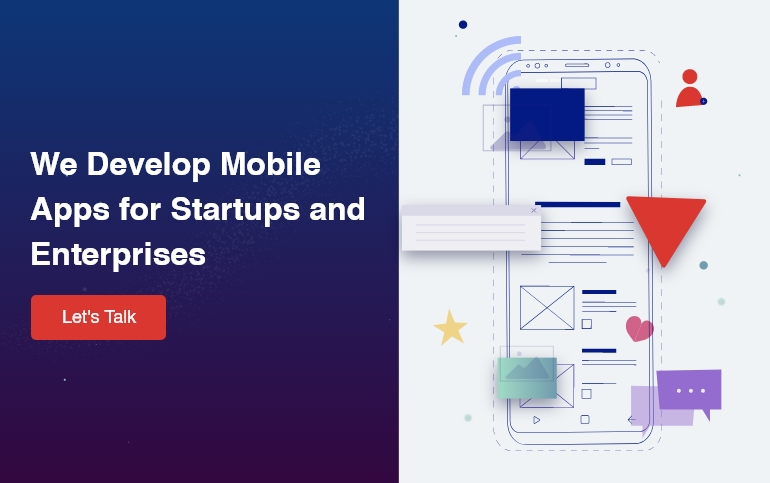
Conclusion
Flutter or React Native –which one to choose? It might not have a clear winner. This is because project requirements tend to vary significantly. Therefore, the selection of the right framework will entirely depend on the specific business requirements and project parameters. Nevertheless, both React Native and Flutter are great frameworks for helping you develop a cross-platform application easier and faster when compared with other tools.
Explore More: Salesforce Vs AWS (Amazon Web Services): What To Choose For Your Business?


